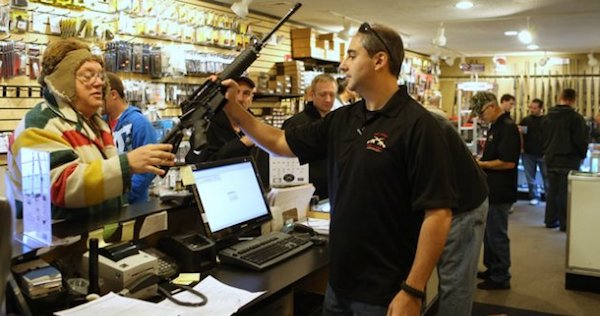
While Georgia authorities continue their investigations into Tuesday’s tragic massage parlor attacks, where eight people were murdered resulting in predictable calls for additional gun controls, there is another side to the firearms issue that should not be dismissed by anyone entertaining thoughts about an unconstitutional ban on guns.
The firearms industry injects billions of dollars into the economy, providing jobs and funding for wildlife conservation and enhancement, habitat protection and more.
A new report from the National Shooting Sports Foundation reveals that in the years from 2008 to 2019, the firearms industry revenue increased from $19.1 billion to $63.5 billion, a 232 percent increase. Industry jobs increased from about 166,000 to more than 342,330, amounting to a 106 percent increase in good paying jobs.
The report also notes, “On a year-over-year basis, the industry’s economic impact rose from $60 billion in 2019, to $63.5 billion.”
The firearms industry paid nearly $7 billion in business taxes, including property and income taxes, the report says.
But there is much more, thanks to some very forward thinking by sportsmen and gun owners back in the mid-1930s, when the federal Aid to Wildlife Restoration program was established. It is generically known as the Pittman-Robertson Act, which places a special excise tax on firearms, ammunition and certain accessories. Revenue from this tax goes into a dedicated fund that is apportioned to the states on an annual basis by the U.S. Fish & Wildlife Service.
Last month, USFWS apportioned $678,894,449 to the States, the Commonwealth of Puerto Rico, Guam, the U.S. Virgin Islands, American Samoa, and the Commonwealth of the Northern Mariana Islands for Fiscal Year 2021. Last year’s brisk gun and ammunition sales, fueled by fears of urban rioting and defunding of local police departments, raised money that will support state level programs done by state wildlife agencies. That money benefits everything from game animals such as sheep, elk, caribou and deer down to non-game species and protected species such as wolves.
For example, Washington State’s Department of Fish & Wildlife received a total of $12,852,873, according to a report from USFWS.
Firearms and ammunition sales last year in the Evergreen State produced an economic impact estimated to hit $1,221,631,700, according to the NSSF report. That group—an umbrella organization for the firearms industry—estimated the direct impact in Washington from the sporting arms and ammunition industry is $493,866,400, including $145,207,400 in wages to people working in 3,443 full-time jobs. The total taxes generated in the state, including both state and federal taxes, comes to $183,929,300, according to NSSF data.
Anti-gunners will contend that this translates to pitting money and jobs against human life, which essentially smears anywhere from 1.5 to 2 million gun owners in the Evergreen State who haven’t harmed anyone. What occurred in Georgia was not the handiwork of more than 100 million law-abiding gun owners, but they’ll be penalized for it, anyway.
Hunters and non-hunting gun owners all support the Pittman-Robertson program with their purchases, and everyone benefits.
Meanwhile, the suspect in Georgia’s mayhem, Robert Aaron Long, is charged with eight counts of murder and one count of aggravated assault, according to the Atlanta Journal-Constitution. He reportedly took full responsibility for the attacks at three different massage parlors, and acted alone.